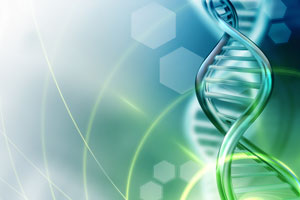Recent news stories alleging mistakes by “celebrity” forensic scientist Henry Lee should serve as an important lesson for criminal defense attorneys. No matter how strong the prosecution’s forensic evidence appears to be, a defense lawyer should never accept it at face value.
Lee’s reputation took a hit after DNA evidence suggested the innocence of a defendant who was convicted of a 1985 murder on the strength of Lee’s testimony. Unable to find convincing evidence to explain the crime, police detectives who investigated the New Milford, Connecticut murder decided that Everett Carr must have been killed because he interrupted a burglary.
After spinning their wheels for two years, the police turned to the old trick of coaxing statements from jailhouse snitches. The informants obliged by incriminating Shawn Henning and Ralph Birch. The police had been trying to pin the murder on the two local thieves but had no evidence that they were ever at the crime scene.
Lee’s Questionable Testimony
The prosecutor, who now admits that the evidence was “shaky,” bolstered the prosecution’s case by calling Henry Lee as an expert witness. To explain why no blood was found on Henning or Birch after such a bloody murder, Lee opined that they must have wiped themselves with a towel found in the bathroom. According to Lee, testing confirmed that stains on the towel were “consistent with blood.”
Later testing established that the stains were not caused by blood. More importantly, there is no record that Lee ever tested the towel. Although Lee now claims he performed a field test (the results of which would not have produced admissible evidence) rather than a test in the crime lab, Lee’s testimony did not hint at that distinction.
A unanimous decision by the Connecticut Supreme Court overturned the convictions of Henning and Birch. The court faulted Lee for failing to engage in due diligence when he testified that there was blood on the towel in the absence of any lab test that confirmed the existence of blood. When an expert testifies about facts, it is an expert’s duty to confirm those facts before swearing that they are true.
Reputations Do Not Shield Experts
Two innocent men might have been spared decades in prison if their attorneys had hired their own expert witness. Independent testing of the towel by defense experts would have revealed that there was no blood on the towel. Lawyers should always confirm that the anticipated testimony of prosecution experts is accurate.
Henry Lee has given important testimony in well-publicized cases involving O.J. Simpson, Scott Peterson, and JonBenet Ramsey. Yet the Daily Beast reports that Lee “has allegedly hidden evidence or given incorrect testimony in at least three other cases, potentially sending the wrong men to prison and allowing guilty ones to walk free.”
Other highly regarded forensic experts have also given unreliable testimony. Despite its reputation as an “elite” unit of forensic scientists, an investigation of the FBI crime lab discovered that expert analysts “gave flawed testimony in almost all trials in which they offered evidence against criminal defendants over more than a two-decade period.”
Scandals have rocked crime labs in more than a dozen states. Forensic experts have been accused not just of negligence, but of stealing evidence, falsifying credentials, tampering with forensic tests, concealing their error rates, and lying about the standards that are deemed acceptable in their field of forensic science.
Never Take Expert Testimony for Granted
Criminal defense lawyers might be tempted to assume that the prosecution’s forensic evidence is unassailable. A fingerprint match, for example, is commonly viewed as powerful evidence of guilt. Yet fingerprint analysis is based on unproven assumptions that a defense expert can call to the jury’s attention.
While cross-examining an honest prosecution expert might expose those assumptions, experts who are employed by the government too often see it as their duty to be an advocate for the government’s theory of guilt. An expert might respond to cross-examination by doubling down on the expert’s testimony that the science upon which the expert relies is foolproof. Defense lawyers should always be prepared to call expert witnesses who can expose the uncertainties associated with fingerprint evidence.
Even DNA evidence, commonly regarded as the gold standard of forensic science, can be challenged. While a defense expert might not be in a position to say that two DNA profiles are different, an expert can explain how mishandled evidence and misinterpreted test results can undermine confidence in a crime lab expert’s testimony.
The bottom line is that no expert, no matter how celebrated the expert might be, is infallible. When funding is available, every prosecution expert should be matched with a defense expert. Calling an expert witness will often expose reasonable doubt and prevent an unjust conviction.




